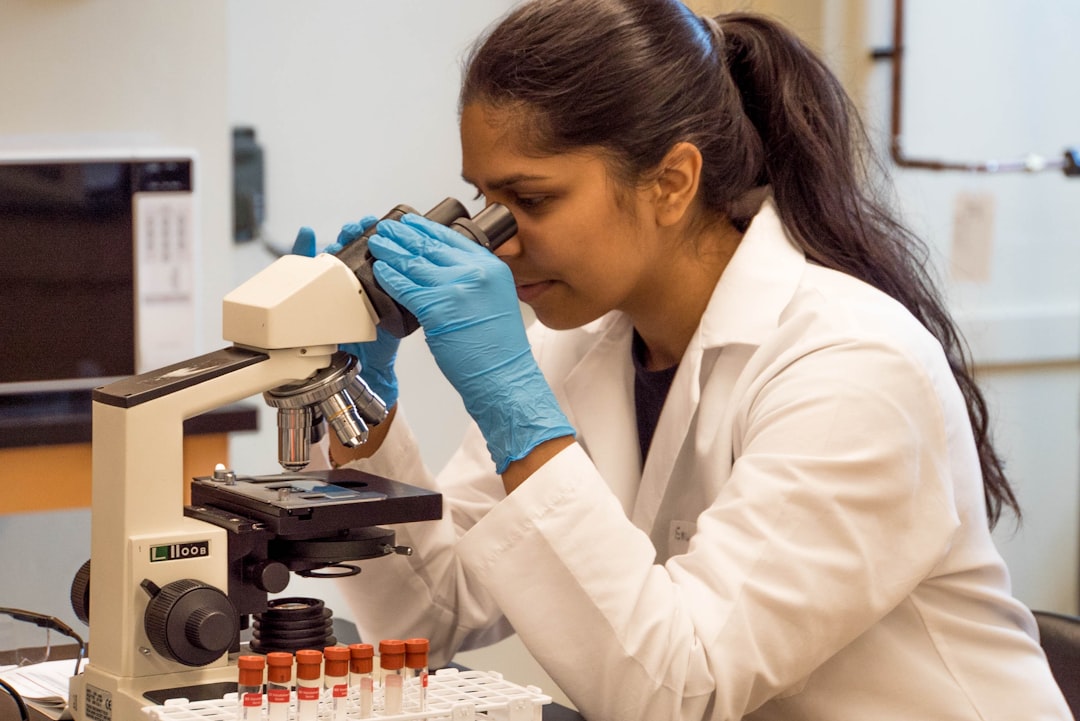Medical Laboratory Scientist Kaipūtaiao Taiwhanga Rongoā
Medical laboratory scientists carry out laboratory tests on blood, tissues and other samples taken from patients.
Medical laboratory scientists need to be registered with the Medical Sciences Council of New Zealand, and have an Annual Practising Certificate.
- Medical Sciences Council of New Zealand website - registration as a medical laboratory scientist
- Medical Sciences Council of New Zealand website - Annual Practising Certificates
Medical laboratory scientists may do some or all of the following:
- test and study blood, tissue and fluid samples
- prepare samples for pathologists
- evaluate tests and report results to doctors
- test, set up, use and maintain laboratory equipment
- maintain laboratory quality assurance and safety standards
- supervise and train other staff such as medical laboratory technicians
- develop new methods and equipment for laboratory testing.
Useful Experience
Useful experience for medical laboratory scientists includes:
- laboratory work
- scientific work
- work in the health sector.
Personal Qualities
Medical laboratory scientists need to be:
- methodical and accurate
- careful and safety-conscious
- enquiring
- adaptable
- reliable
- good at problem solving
- good at communicating.
Skills
Medical laboratory scientists need to have:
- a good understanding of chemistry, biology, maths and physiology (the study of how living organisms work and respond to diseases)
- practical skills for performing experiments and operating scientific equipment
- thorough understanding of laboratory safety
- the ability to follow scientific procedures.
Conditions
Medical laboratory scientists:
- do shift work, and may work weekends or be on call
- work in community, hospital, commercial or veterinary diagnostic laboratories
- may travel locally to take samples at doctors' surgeries, hospitals, rest homes, patients' homes and workplaces.
Subject Recommendations
A tertiary entrance qualification is needed to enter tertiary training. Useful subjects include biology, chemistry and maths.
Related Courses
Medical Laboratory Scientists can earn around $52K-$73K per year.
Chances of getting a job as a Medical Laboratory Scientist are good due to a shortage of people interested in this type of work.
Pay for medical laboratory scientists varies depending on experience and where they work.
- Trainee medical laboratory scientists working for Te Whatu Ora Health NZ (previously DHBs) usually earn $52,000 to $58,000 a year.
- Medical laboratory scientists working for Te Whatu Ora with one to six years' experience usually earn $58,000 to $73,000.
- Supervising or senior medical laboratory scientists at Te Whatu Ora can earn up to $106,000.
Sources: APEX and District Health Boards, 'Multi-employer Collective Agreement 2021-2023', 2021.
Medical laboratory scientists may progress into managerial or supervisory roles in a laboratory.
With further postgraduate study, they may do research into particular disciplines and scientific methods, or become university lecturers. They may also move into other areas such as teaching, animal health, the food industry, or working for commercial science companies.
Medical laboratory scientists usually specialise in two or more of the following disciplines:
- Clinical Biochemist
- Clinical biochemists analyse samples of blood, urine, faeces and tissue for diseases such as diabetes and renal failure.
- Clinical Immunologist
- Clinical immunologists study the body's immune system to test for diseases such as allergies and HIV infection.
- Cytogeneticist
- Cytogeneticists investigate genetic disease and how chromosomes are affected by disease.
- Haematologist
- Haematologists analyse blood samples for diseases such as anaemia and cancer.
- Histologist
- Histologists prepare tissue samples for investigation by a pathologist.
- Medical Cytologist/Cytoscientist
- Medical cytologists/cytoscientists test cell samples for cancer.
- Medical Microbiologist
- Medical microbiologists detect, cultivate and test bacteria and fungi.
- Transfusion Scientist
- Transfusion scientists prepare blood and blood products for transfusion.
Years Of Training
4 years of training usually required.To become a fully qualified medical laboratory scientist you need to:
- have a Bachelor of Medical Laboratory Science
- be registered as a Medical Laboratory Scientist with the Medical Sciences Council of New Zealand
- hold a current practising certificate
- work as a trainee medical laboratory scientist for at least six months.
Alternative entry paths
If you already have a degree
If you already have a degree, you may be able to do a shorter qualification instead of the Bachelor of Medical Laboratory Science.
Contact the Medical Sciences Council of New Zealand to discuss suitable qualifications.
If you're a medical laboratory technician
If you're already a medical laboratory technician you may be able to do an extra qualification in medical laboratory science to become a medical laboratory scientist if you:
- are a registered medical laboratory technician
- have worked for at least a year in a New Zealand medical diagnostic laboratory
- have a Bachelor of Science or Bachelor of Biomedical Science.
Contact the Medical Sciences Council of New Zealand to discuss suitable qualifications.

 Epsom Girls Grammar School
Epsom Girls Grammar School